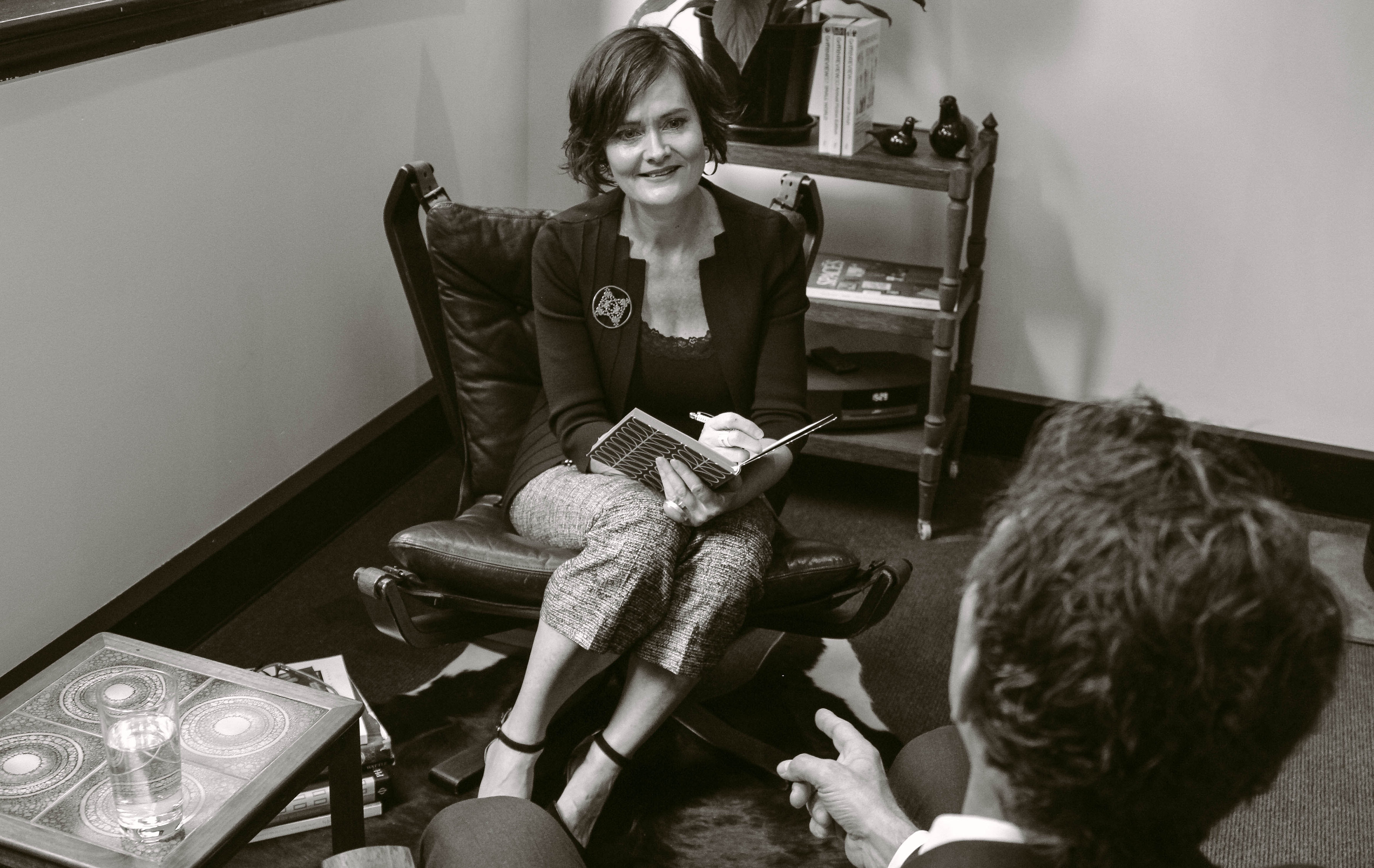I’m sure, as the wave of mentally healthy workplace programs progress, the light will eventually shine on this group, but in the meantime, I am formally recognising that there is a gap in mental health support for top tier professionals.
Many CEOs and Executive Leaders contact me because of the compelling promise I make. Compelling because it goes right to the heart of the challenge, fears and deep desire of those ‘steering the ship’:
“I’ll help you maintain professional momentum within very demanding business environments without losing what you value most – your Health; your Relationships; and your Peace of Mind”
We all know that these three elements underpin a contented, fulfilled life, and most of us understand that maintaining our health, positive relationships and peace of mind requires an element of commitment. We know deep down that we might be able to take these for granted for a little while, but if we don’t nurture and feed these elements, we’ll suffer and so will those around us.
In the past 12 months, as I’ve spoken to many leaders about my unique Counselling Practice and supported clients through some pretty challenging issues, two messages have made me stop and reflect on the crucial need for specialist counselling support for the CEOs and Executives.
- Who’s looking after the person looking after us?
Those under the most pressure; those more likely to hide their own emotional struggles due to their profile and the expectations of their role; and those with the responsibility to create mentally healthy workplaces receive minimal specialist mental health support and resources addressing the unique context within which they live and work.
This message came from an ex-client of mine, a Transport Industry Executive, during a very enlightening discussion. He said –
“It’s only in the wee hours that anxieties about my investment (or lack of) in my health, my family and friendships and my own peace of mind bubbles to the surface. Sometimes I make deals with myself to spend more time with my beautiful teenage boy and my wife…sometimes I decide I’ll get up an hour earlier to walk the dog, and sometimes those terrifying questions come to mind – am I doing what I am meant to be doing with my life?”
- “Everyone wants a piece of me”
This message was also received from one of my clients, and also made me pause for thought about this broader issue. When I hear this, I know there’s a need for more support for this level of leadership. This isn’t weakness or lack of skill, this is an accurate reflection of the reality for many CEOs and Executives. This is why our top tier leaders need breathing space to be vulnerable, gain perspective, be supported so they can keep doing the great work that many of them are doing.
Therapeutic conversation or Counselling, approaches the client as a human being first and a professional second. I’m sure, as the wave of mentally healthy workplace programs progress, the light will eventually shine on this group, but in the meantime, I am formally recognising that there is a gap in mental health support for top tier professionals.
Breathing Space – What I provide
As a Counsellor specialising in working with high performing professionals in the business arena, I provide a safe confidential space for leaders to drop the game face. To stop and check in: reflect on the state of their health; their relationships; and their peace of mind.
A mentally healthy workplace starts at the top…and the top team need to live and breathe their understanding and commitment to this, so support for this team (for creating positive relationships, living agreed values and behaviours) and the individuals within it, is crucial.
One of the benefits for Executives utilising Breathing Space counselling service is that, as an experienced senior leader and Board Director, I understand the context within which you work: the pressures; the imperatives; the dynamics so you don’t have to spend all your time explaining! You will be understood, and you will receive skilled confidential, non-judgmental emotional support.



